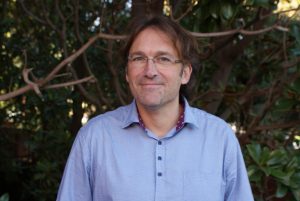22-02-2021
Sergi Munné-Bosch, ICREA Academy 2020
The ICREA Academy 2020 program has distinguished the scientific trajectory of Dr. Sergi Munné-Bosch, professor of the Department of Evolutionary Biology, Ecology and Environmental Sciences at the Faculty of Biology and member of the Biodiversity Research Institute (IRBio) of the UB.
The ICREA Academy program contributes to intensifying the research carried out by university teachers who are in a fully active and expansive phase of their research career. Winners receive a grant to do research over a five-year period.
Prof. Sergi Munné-Bosch (ICREA Academia award 2008, 2014 and 2020) leads the research group ANTIOX, devoted to the study of antioxidants in plants. Research fronts focus on Plant Ecophysiolgy (www.antiox-ecophys.com) and Agri-Food Biotechnology (www.antiox-postharvest.com). Prof. Munné-Bosch is author of more than 250 articles in JCR-indexed journals, several book chapters, has edited two books and is the Editor-in-Chief of Environmental and Experimental Botany. He is currently giving lectures on "Plant Physiology and Biochemistry" and "Control of Plant Metabolism and Development" in the Biotechnology Degree and on "Plant Responses to Environmental Stresses" in the "Environmental Agrobiology" Master Degree of the University of Barcelona, and is now supervising 8 Ph.D. Theses. His main goal is to better understand the fascinating world of plant physiological processes, help students to reach this goal and transfer this knowledge to the industry and society.
Research at IRBio
ANTIOX is a research group from the University of Barcelona run by Prof. Sergi Munné-Bosch. The group is studying the antioxidants obtained from plants such as vitamin E (tocopherols and tocotrienols), vitamin C (ascorbic acid), pro-vitamin A and other carotenoids, flavonoids (anthocyanins) and phenolic diterpenes. Our research is split in two areas: plant ecophysiology and agri-food biotechnology. Studies on plant ecophysiology at IRBio focus on mechanisms of abiotic stress tolerance, sexual dimorphism, the ecophysiology of invasive plants, and seed banks.
Abiotic stresses condition plant performance. With an ever-changing environment plants have to adapt their function and structure to optimize growth and reproduction. One way plants have to cope with these changes is through phenotypic plasticity, which includes a range of mechanisms that vary not only between species but also within-species. We focus our research on the study of the mechanisms and phenotypic responses underlying tolerance to several abiotic stresses alone and their cross-talk, including drought, salinity, nutrient deficiencies and high light stress.
Dioecious plants not only differ in their production of gamete but also in their morphology, physiology and phenology. The latter is known as secondary sexual dimorphism. Given that females have to produce fruits and seeds, it is generally assumed that females will have higher costs of reproduction than males. However, this is species-dependent. In order to understand and broaden our knowledge in the physiological consequences of the differential allocation of resources of males and females and how these affect populations’ sex ratios, we focus our research on leaf senescence, photoprotection mechanisms, photo-oxidative stress and plant resistance to abiotic stresses.
Invasive plants constitute an important threat to global biodiversity, impacting on several systems and levels. Since these species seem to show an increased vigor making them able to outcompete native species, physiology markers constitute an essential tool to understand the invasion process.
Through the characterization of ecophysiological processes and traits such as competition, stress responses, clonal growth, antioxidant systems or photoprotection we try to understand which mechanisms confer invasion success. Moreover, the understanding of the physiological constraints behind invasive success contributes to generating combined approaches to develop effective management strategies.
Seeds play a crucial role on species persistence among ages. This reproductive structures resulting from the sexual reproduction in spermatophytes are fragile elements that guarantee species survivance, genetic variability, and species expansion. After seed rain, seeds can resist buried in the soil for several years. Seeds from seed dormancy species await for the optimal environmental conditions. Oxidative stress is a central element on seed longevity, the dormancy break, and the germination process. The study of antioxidant systems and pro-oxidants such as reactive oxygen species (ROS) may become useful when trying to describe those processes, but also their importance to the ecosystem composition in a changing world.
Oxidative stress markers and aging are currently being studied aiming to understand the biological processes occurring in seed banks, with an emphasis on the study of the ecophysiology of natural seed banks in Mediterranean plants.
